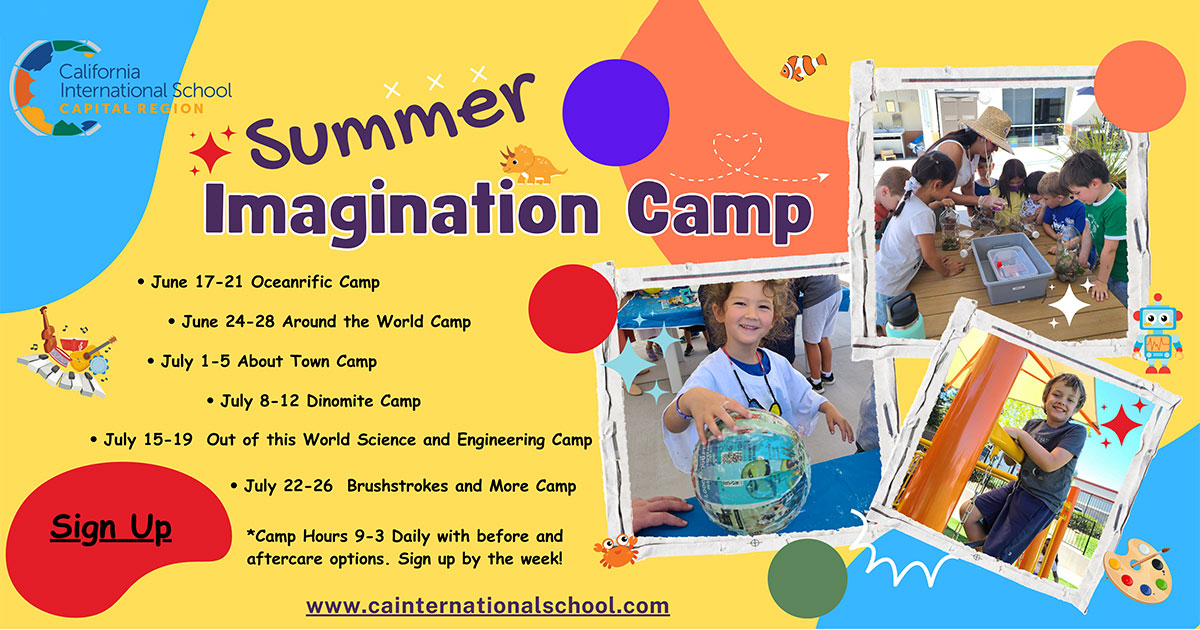Humor is far more than just a way to make children laugh—it’s a powerful tool for developing key social, emotional, and cognitive skills. Whether at summer camp, in the classroom, or at home, jokes and riddles play an important role in shaping kids’ lives and promoting well-being. we’ll explore how humor fosters friendships, boosts self-confidence, aids learning, and builds emotional resilience. Let’s take a look at how humor enriches a child’s experiences across different settings.

Humor as a Social Connector: How Laughter Builds Friendships
At the heart of every great friendship is shared laughter. Humor is one of the easiest and most effective ways for kids to connect with others, whether they’re meeting new friends at summer camp or bonding with classmates during school activities.
Laughter naturally breaks down social barriers, helping kids feel comfortable and accepted in new settings. At summer camp, where kids are often away from home for the first time, telling jokes or sharing funny stories creates an instant sense of camaraderie. Humor helps build trust, encourages open communication, and fosters a sense of belonging. Whether it’s around the campfire or during team games, laughter strengthens the friendships that are formed during these experiences.
Humor also plays an important role in reducing social anxiety. Kids who might feel shy or nervous in a group setting often feel more at ease when they can laugh and share a funny moment with their peers. It’s an easy way to break the ice and start conversations, creating lasting social connections.
Creating a Fun Learning Environment: The Power of Humor in the Classroom
Classrooms don’t have to be all about textbooks and tests—incorporating humor into lessons can make learning more fun and engaging for kids. Teachers who use jokes, funny anecdotes, or playful riddles can create a more relaxed atmosphere that helps kids feel excited about learning.
Humor also boosts memory retention. When kids associate something humorous with a lesson, they’re more likely to remember the material later. For instance, a teacher who tells a lighthearted joke about math or science can make even the most complex subjects seem more approachable. Jokes can simplify complicated topics, making them more relatable and easier to grasp.
Beyond making lessons enjoyable, humor reduces classroom stress and anxiety. Kids often feel nervous about tests, public speaking, or even participating in class discussions. A well-timed joke or funny comment can relieve tension, helping students feel more comfortable and confident.
Making Summer School Less Stressful with Humor
Summer school is often seen as a time for extra work, but that doesn’t mean it has to be dull or stressful. In fact, humor can be the perfect antidote to the pressure of summer learning. Teachers can use jokes, playful activities, or riddles to turn a potentially tedious day into an enjoyable experience.
Injecting humor into the curriculum can make challenging topics feel more engaging and less overwhelming. For example, a history teacher might relate a funny story to help students remember key events, or a math teacher might challenge the class with a pun-filled math riddle to kick off the lesson. These little moments of humor can create a lighthearted environment that keeps kids engaged and motivated to learn.
Humor also offers a much-needed mental break during long days of studying. A quick, fun joke or riddle can refresh students, helping them stay focused and energized for the next task at hand. By making summer school more fun, humor can change kids’ perspectives on learning and make them look forward to class each day.
Cognitive Growth: How Jokes and Riddles Boost Brain Development
Humor isn’t just for fun—it’s a tool for cognitive development, helping kids strengthen their problem-solving and critical-thinking skills. Jokes and riddles, in particular, require children to engage with language in creative ways and exercise their brains to find solutions.
Riddles challenge children to think logically and use reasoning to decipher clues and reach the answer. This process encourages them to think critically and analyze problems from different angles, which improves their cognitive flexibility. These problem-solving skills are essential for success in school and everyday life.
Furthermore, humor helps kids improve their understanding of language. Wordplay and puns introduce children to the multiple meanings of words and encourage them to explore language creatively. These skills boost vocabulary and enhance reading comprehension, laying the foundation for strong language skills as they grow.
Laughter as an Emotional Resilience Tool
In addition to its cognitive benefits, humor is a powerful tool for building emotional resilience. Life can be challenging, and humor helps children navigate stressful situations with a positive outlook. Whether it’s a tough day at school, dealing with frustration over a difficult task, or coping with a setback, laughter helps children manage their emotions and stay calm in the face of adversity.
Humor helps kids build coping mechanisms. It provides them with a way to laugh at challenges, making them feel less overwhelming. For example, a child who is frustrated with homework might find relief in a funny joke, which allows them to approach the task with a clearer mind and renewed energy.
Moreover, humor fosters a sense of hope and optimism. Children who can find humor in difficult situations are more likely to maintain a positive attitude and bounce back from setbacks. Laughing together in a group, whether it’s at summer camp or during family time, reinforces the idea that no challenge is too big when you can approach it with a smile.
Enhancing Communication: How Jokes Help Kids Express Themselves
Telling jokes and solving riddles are excellent ways for children to practice communication skills. Humor provides a natural opportunity to engage in conversations, improve storytelling abilities, and develop social intelligence.
When kids tell a joke, they learn how to communicate more effectively. They practice timing, tone, and body language—all of which are crucial for expressing themselves clearly. These skills transfer to all areas of life, whether they’re talking to a teacher, making a new friend, or presenting a project.
Humor also encourages children to think creatively about language. Crafting a funny story or punchline requires them to use words in new ways, which helps develop their writing, reading, and listening skills. As children refine their sense of humor, they also become more confident in their ability to communicate with others.
Building Confidence Through Humor
Humor is a great way to boost kids’ self-esteem and self-confidence. Making others laugh is a positive reinforcement that helps children feel good about themselves. When children successfully tell a joke or share a funny moment, they experience a sense of accomplishment and pride. This reinforces their belief in their abilities and encourages them to continue engaging with others.
For children who are shy or struggle with social interactions, humor can provide an easy way to build connections. Telling a joke or sharing a funny story can break the ice and make children feel more comfortable in social settings. As they witness the positive reactions from others, their confidence grows.
Furthermore, humor helps children develop the ability to laugh at themselves. Being able to find the humor in one’s own mistakes or challenges is an important skill for building resilience and maintaining a positive outlook, even when things don’t go as planned.

The Lasting Impact of Humor on Kids’ Development
Humor is far more than just a source of fun—it’s a cornerstone of childhood development. From strengthening social bonds and building self-confidence to enhancing cognitive skills and emotional resilience, laughter plays a crucial role in shaping who kids become as they grow.
Whether it’s telling jokes at summer camp, sharing a funny moment in the classroom, or solving riddles with family, humor helps kids develop important life skills that will serve them for years to come. The positive impact of laughter on children’s well-being cannot be overstated, and it’s a gift that can continue giving as they mature.
So, the next time you’re with a child, share a joke or a funny story. Not only will you make them smile, but you’ll also be helping them grow into confident, resilient, and well-rounded individuals.

